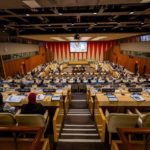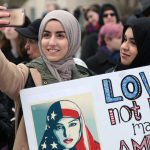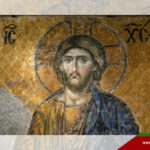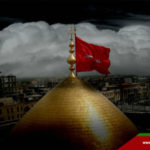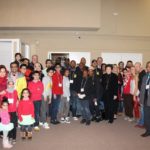By Fatima kermali
Two great religious leaders from the two Abrahamic faiths have met marking a unique historical union. Pope Francis met top Shia Muslim religious leader Grand Ayatollah Ali al-Sistani during the first-ever papal visit to Iraq. Pope Francis went to Iraq from March 5 to 8, with visits planned to the capital Baghdad, the northern city of Mosul and Ur, where Abraham is said to have been born. Included in the visit was the city of Najaf during his three-day trip to Iraq where he had a private meeting with the Grand Ayatullah where he resides. Najaf is a prominent city as it houses the shrine of Imam Ali where he is buried, the successor to the Prophet Mohammed. Najaf is also the home to Shiite Islam’s most prominent hawza – an institution of religious learning, and Iraq’s marja’iyya, the most learned and respected Shiite clerics in the country.
The meeting between the 84 year old pope and 90 year old ayatollah is a profound statement about the importance of tolerance and dialogue in a tumultuous region where unrest harbors over the people. This unification is a sign of peace and solidarity for people not only in Iraq, or the middle East but all over the world as millions witness two influential global religious leaders with differing faiths, and nationality come together. Sistani, 90, is seen as a moderating figure in Iraq, and over the years his pronouncements have demonstrated influence. He has mobilized Iraqis to vote and brought down a prime minister. He helped turn the tide against the Islamic State, issuing a fatwa that called on Iraqis to join the fight against the group.
Yet, the meeting has highlighted the religious diversity of Iraq rather than the political conflicts of the country. The Pope’s visit also sparks the important cultural historical heritage of the nation as being the cradle of civilization.
Henceforth, Pope Francis arrived in Iraq on Friday, and met the Ayatollah in his modest home devoid of any pomp or entourage usually associated with visiting heads of state. The meeting lasted about 45 minutes. The meeting occurred with no media present. Afterward, the Vatican said in a statement that the conversation had “underlined the importance of collaboration. “Sistani’s office put out a statement of its own saying that the ayatollah had wished the pontiff, and Roman Catholics, “happiness and peace.” According to the statement, Sistani said spiritual leaders of the “great religions” should make an effort to curb the tragedies of oppression, persecution and violence.
The impact of the meeting not only moved many around the world but, Pope Francis himself also had a reverence for his counterpart with whom he conversed for nearly an hour. He stated after the meeting,
“I felt the duty in this pilgrimage of faith and penitence to go and meet a great man, a great sage, a man of God and on listening to him [Ayatullah Sistani], you can perceive this….He is a person who has wisdom and prudence. He said to me it has been 10 years that I have not received people who come to visit me with political objectives, I met only those with religious. He was very respectful, very respectful in our meeting that I felt honored. He never gets up to greet people but he got up twice to greet me. He is a humble and wise man. That meeting did my soul good, it is a light.”
After meeting with Sistani, Francis traveled across southern Iraq, arriving on the outskirts of a desert archaeological site, now lined with Vatican and Iraqi flags. On the horizon, military members paced the top of a 4,000-year-old mud-brick Mesopotamian ziggurat, the lone remnant of the ancient civilization. Speaking to the interreligious gathering in a place where “faith was born,” Francis said groups needed to work together to end extremism and hostility. Francis later presided over a mass at St Joseph’s Cathedral in Baghdad. On Sunday, he will visit Christian communities in Mosul, Erbil and Qaraqosh in the north of the country.
This visit truly demonstrated the Ayatollah’s message of peace, as he affirmed, “the sacredness of human life and the importance of the unity of the Iraqi people”.

